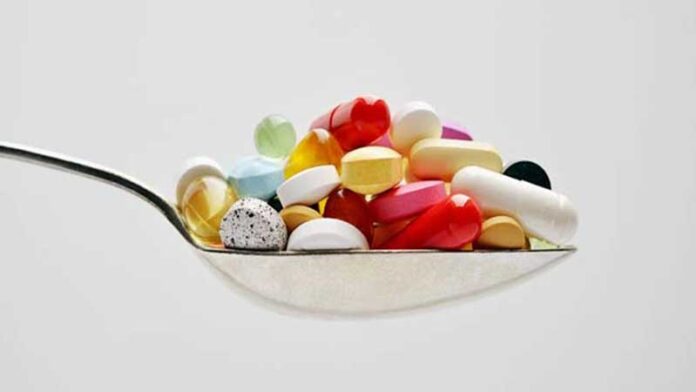You can get some over-the-counter medications, but they can be dangerous, especially if you try to treat yourself with more than one.
According to recent studies published in the Journal of Public Policy and Business, even people who carefully read the labels of these drugs are often unable to recognize their potential risks, such as active ingredients similar to over-the-counter drugs.
Take better care of yourself during your recovery. Avoid the dangerous and possible combinations of these drugs by following the tips below
Dangerous pair: Tylenol and multi-purpose cold medicines –
Often, acetaminophen is used to treat coughs, colds, and flu in order to improve the symptoms caused by them, such as painful sore throats, headaches, and fevers.
Dr. Jess Kaltin of California National University, Sacramento believes that by taking Tylenol, which contains acetaminophen, along with acetaminophen itself, you will increase the daily absorption of the drug and exceed the 4 grams of the daily drug limit.
What is the risk? Liver damage that eventually leads to liver transplantation or even death. (High consumption of this drug, i.e. more than 7 grams per day, is considered a serious threat, and even if you consume more than 4 grams of them together in just one day, it can be very dangerous. be
Replace: Focus on the name of the drug. Dr. Nicole Gates, a professor at Lewis University of Pharmacy, says that sometimes acetaminophen is classified and packaged in the class of pain relievers, and sometimes it is packaged in the class of antipyretics, while its ingredients are the same. Also, pay attention to abbreviations derived from acetaminophen such as “asthma” or the name paracetamol, which is a well-known name for acetaminophen in other countries.
Dangerous pair: any combination of ibuprofen, naproxen and aspirin –
Brand-name drugs such as Advil, Aleve, and Bayer are in a class of drugs called nonsteroidal anti-inflammatory drugs, Kaltin says.
Since they all work in a similar way, taking more than one of them greatly increases the risk of side effects from them. According to Dr. Tim Davis, a member of the National Association of Pharmacists, these side effects can range from mild nausea to gastrointestinal bleeding.
Alternate: Take only one medication at a time, reading and following the directions on the bottle carefully to find out which one works best for you.
Dangerous pair: antihistamines and anti-nausea drugs caused by the movement of vehicles.
Be very careful when taking antihistamine allergy medications such as Benadryl with motion sickness medications such as Dramamine.
Diphenhydramines to treat colds, red eyes and runny nose; Dimenhydrinites are effective in reducing nausea; which have similar active ingredients and increase fatigue and sleepiness. Gates says you often hear about people falling asleep during flights because of an overdose of antihistamines.Alternative: If you’re on antihistamines, use non-sleep medications that contain the active ingredient meclazine to treat motion sickness.
Dangerous pair: antidiarrheal drugs and calcium supplements.
Products containing loperamide such as Imodium treat diarrhea. But if you take them along with calcium supplements, your problem will be reversed
Replace: David goes on to say that you should ditch your calcium capsules until your gut issues are resolved. Even if your doctor strongly urges you to take Klysem capsules, you should still stop taking them because avoiding them for a few days will not cause serious problems for your bones.
Dangerous pair: tea grass and cough medicine –
Tea herb herbal supplements are used to reduce anxiety and depression. Dextroamphetamine is an antitussive drug that stops dry coughs
David believes, but taking both of them together causes a dangerous condition known as serotonin syndrome. Excessive secretion of serotonin neurotransmitters in your brain system can lead to excessive sweating, impaired senses and anxiety, inability to control movements and in some rare cases lead to death.
Substitute: First, check to see if you really need dextroamphetamine. If you do not have frequent and annoying coughs, then you do not need it and avoid taking it separately
Find a medication that only relieves your symptoms. Gates notes that if you’re concerned about combining cold, cough, and flu medications with other medications and having adverse results, talk to your doctor or pharmacist, even over the phone.
You can also use cold compresses for your dry cough, drink plenty of water, put cough drops in your nose, or even eat cough drops, Gates says.
Consuming 1.2 to 2 teaspoons of honey before bed relieves night coughs and improves sleep quality.










